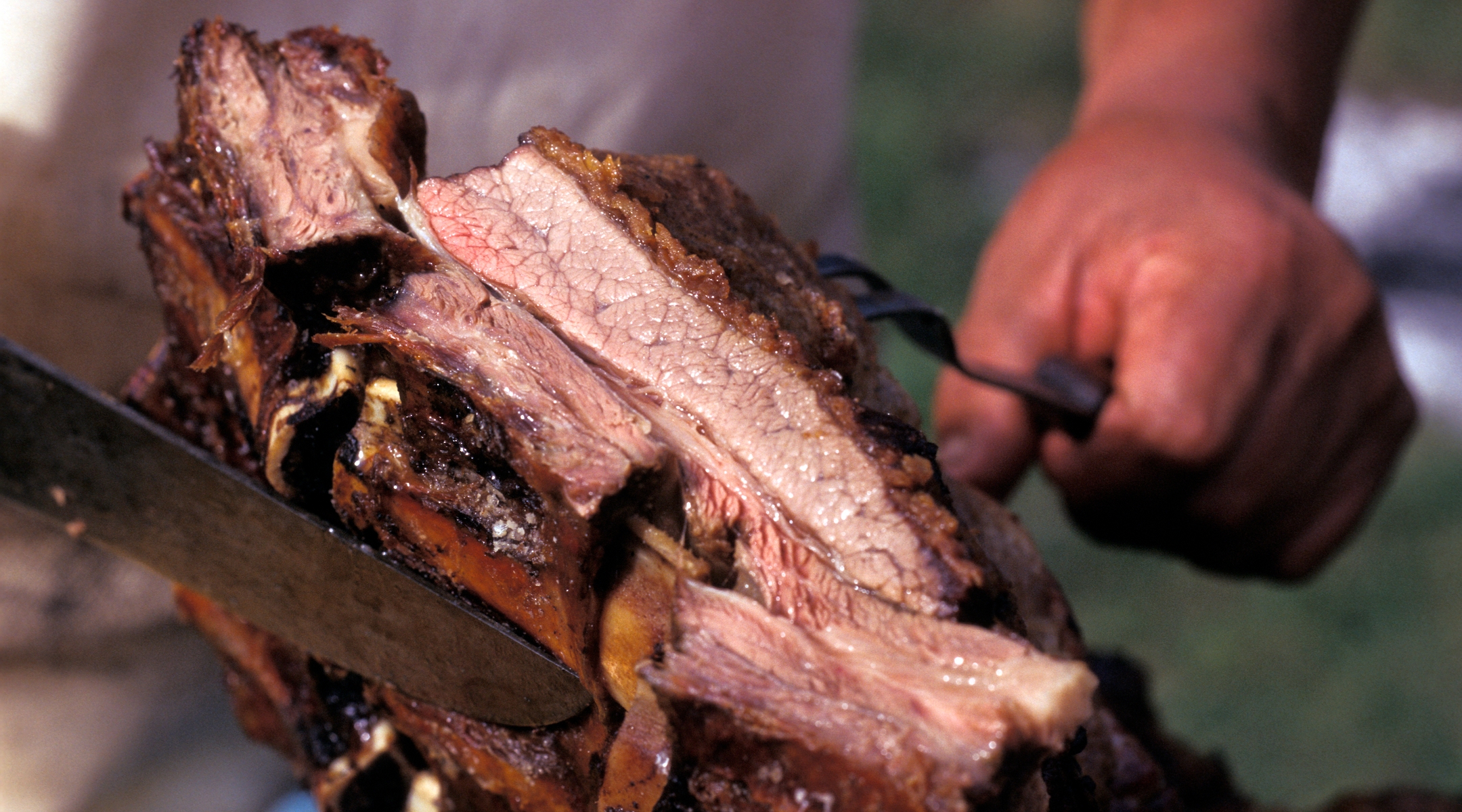BUENOS AIRES (JTA) — The Jewish owner of a large Argentine hypermarket chain has started selling kosher meat for far less than competitors this month, claiming that the country’s kosher supervision industry has artificially driven up costs for consumers.
Roberto Goldfarb, the founder and CEO of Diarco, first announced his intentions in a call in May with El Lazo, a Jewish youth center associated with the Chabad Lubavitch movement. On the call he called the kosher supervision industry a “mafia” that cons buyers and charges more than necessary “with excess of weight, fat, bones.”
“I can sell a kilo of asado [a traditional Argentinian meat cut used in barbecuing] for 290 pesos and then someone comes to tell me that the price for the kosher asado has to be 800 pesos … I’m not going to accept that,” he said.
Earlier this month, Diarco stores began selling kosher meat for several hundred pesos less than the usual prices seen around the country. Goldfarb said some farmers have stopped working with him over the price decrease.
On Monday, Clarin, Argentina’s largest news site, chronicled the quarrel and quoted both Goldfarb and rabbis involved in the kosher supervision of meat.
Samuel Levin, a rabbi who works with the Gorina supervision group, said “I work with 30 people, 10 ‘shochatim,’ who are specialists. That’s why you pay.”
The Latin American Rabbinical Seminary based in Buenos Aires released a statement last week titled “Kosher means suitable, not expensive.” The statement was also signed by the Rabbinical Assembly, the international association of Conservative rabbis.
“In recent decades, a brutal overpriced business has been generated in Argentina, in flagrant violation of Jewish Law and reasonable practices, based on the industry of rabbinical supervision of food. Rabbis have made people hostage of their ‘halachic’ decisions, and together with some businessmen they have created a mafia in the provision and price of Kosher food,” the statement reads.
Without mentioning Diarco, the statement ends saying that on behalf of both institutions, “We support and encourage any new initiative that, within the framework of Jewish Law, seeks to end abuses and help people.”
JTA has documented Jewish history in real-time for over a century. Keep our journalism strong by joining us in supporting independent, award-winning reporting.






